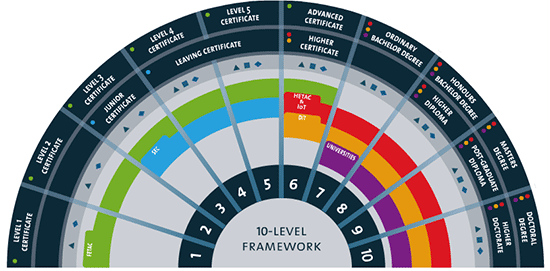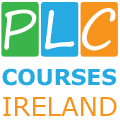There was a time, not too long ago, when your Leaving Certificate grades and the points that they translated into determined whether you would become a third level student for three or four years, go directly into employment, do a secretarial course, join the army or visit your local FAS office. Thanks to the Post Leaving Certificate/ Further Education Courses things suddenly got a whole lot better for those leaving secondary education or those wishing to return to education.
Today many view the PLC route as their alternative stepping stone into Higher Education Institutes, should they wish to avail of this option, whilst others see it as ‘not going in the front door’ but ‘the back door’ of higher education providers. At the end of your studies in a higher education provider it doesn’t really matter what door you came in through but the qualification in your hand!
Who is the PLC route for? Many argue it is for those who are more practical than academic. Not necessarily so anymore! As year after year, many entrants into the PLC sector of education also have the offer of CAO courses. Some PLC students don’t want to commit to a 3 or 4 year course in a third level institution until they have actually experienced or studied a similar Level 5 or 6 certificate course. PLC courses assist students in making a more informed decision prior to further commitment.
There are PLC courses that prepare you for specific further study as well. Courses such as Nursing Studies, Art-portfolio preparation and Pre-Engineering courses are some of the examples. Some students attend a PLC college in order to have a second opportunity to score higher points than they got in their leaving cert.
Whatever the reason for doing a PLC course, you will find over 1400 further education centres registered with QQI (Quality and Qualifications Ireland – Formerly FETAC). The distinctive feature of further education is its diversity and breadth of provision, and its linkages with other services such as employment, training, area partnership, welfare and community and voluntary sector interests. Further education and training programmes typically have a vocational or work focus and reflect national, regional or sectoral economic needs. An element of work experience and job preparation is inbuilt into all programmes, which are essential components for students who wish to enter the employment market. PLC courses are not just aimed at the student leaving school but also at adults retuning to education.
The buzz word these days is ‘progression’. Many PLC/FE courses lead to QQI Level 5 and 6 awards, and in some cases you can progress with this award via The Higher Education Links Scheme or The Pilot Scheme to a third level course in a variety of higher education institutions including universities, institutes of technology and even private colleges. The Higher Education Links Scheme facilitates progression to specific third level programmes whilst the Pilot Scheme allows you to compete for CAO places alongside leaving certificate students. Most Higher Level Institutes now reserve a quota of places for QQI graduates. If you look at the National Framework of Qualifications you can place yourself according to your level of education on the framework (. From your starting point you can go from one level to the next should you wish to do so. One level becomes a ladder to the next.
The National Framework of Qualifications is now the single structure mechanism for recognising all education and training in Ireland. All framework awards have an NFQ Level (1-10) which tells you about the standard of learning and an NFQ Award-Type which tells you about the purpose, volume and progression opportunities associated with a particular award. A key element of the NFQ is to improve access (entry) to education and training, transfer within and between education and training and progression within and between education and training. (see www.nfq.ie for further information)


